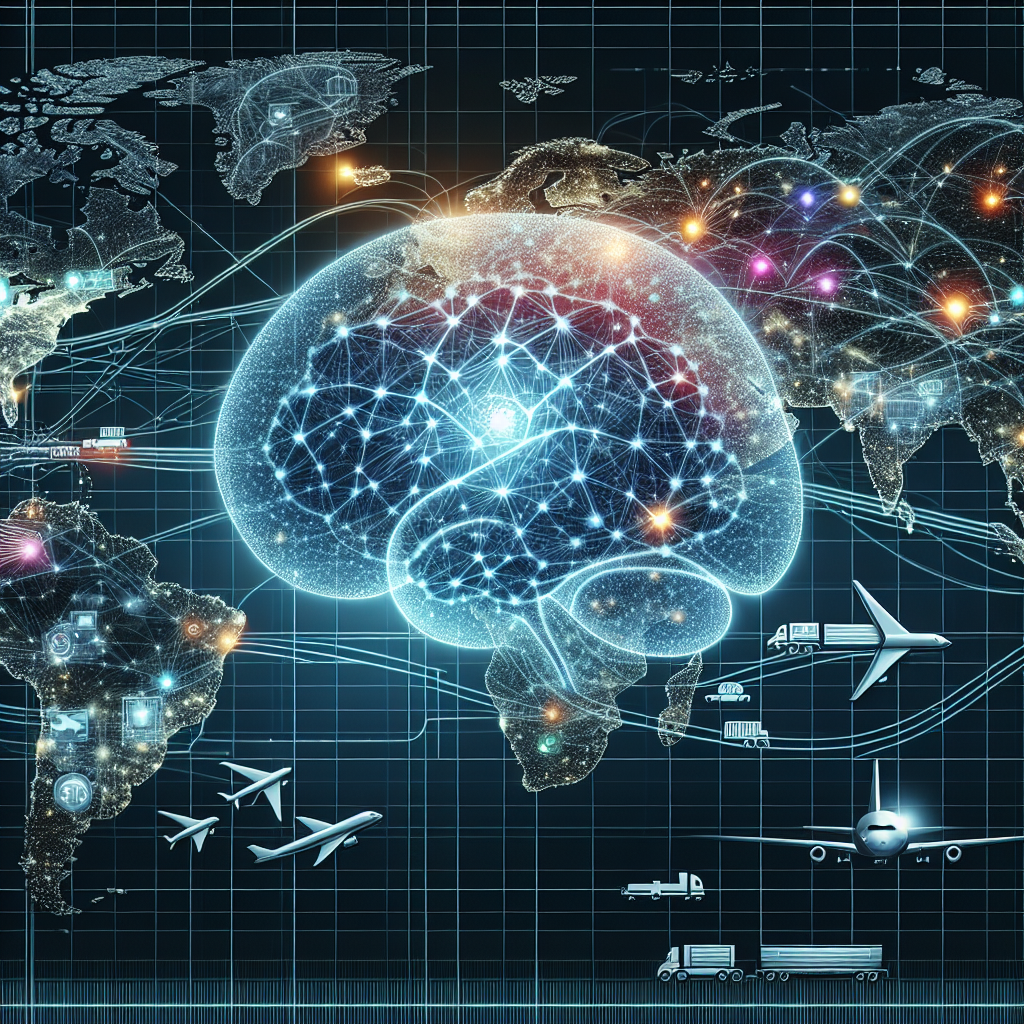The Impact of AI on Real-Time Tracking and Monitoring in Transportation
Artificial Intelligence (AI) has revolutionized many industries, and transportation is no exception. Real-time tracking and monitoring have become essential components of modern transportation systems, and AI has played a significant role in enhancing these capabilities. From optimizing route planning to improving safety and security, AI has transformed the way transportation companies operate and deliver their services.
AI-powered real-time tracking and monitoring systems use advanced algorithms and machine learning techniques to collect, analyze, and interpret data from various sources in real-time. This allows transportation companies to make informed decisions quickly and efficiently, leading to improved efficiency, reliability, and customer satisfaction.
One of the key ways AI has impacted real-time tracking and monitoring in transportation is through predictive analytics. By analyzing historical data and real-time information, AI algorithms can predict potential issues or disruptions in the transportation network, allowing companies to proactively address them before they escalate. This proactive approach not only minimizes delays and disruptions but also reduces costs and improves overall operational efficiency.
Another significant impact of AI on real-time tracking and monitoring in transportation is the ability to optimize route planning and scheduling. AI algorithms can analyze a vast amount of data, such as traffic patterns, weather conditions, and historical trends, to recommend the most efficient routes for vehicles. This not only saves time and fuel but also reduces carbon emissions and improves environmental sustainability.
AI also plays a crucial role in enhancing safety and security in transportation systems. Real-time monitoring systems powered by AI can detect anomalies and potential risks, such as accidents, breakdowns, or unauthorized access, and alert operators or authorities immediately. This proactive approach to safety and security can prevent accidents, theft, and other incidents, ultimately saving lives and protecting assets.
Furthermore, AI-powered real-time tracking and monitoring systems can improve customer service and satisfaction. By providing accurate and up-to-date information on the whereabouts of vehicles, shipments, or passengers, transportation companies can enhance transparency and communication with customers. This leads to increased trust, loyalty, and repeat business, ultimately driving revenue and growth.
In addition to these benefits, AI also enables transportation companies to optimize their resources and operations more effectively. By analyzing data in real-time, AI algorithms can identify inefficiencies, bottlenecks, or opportunities for improvement and recommend actionable insights to optimize performance. This continuous improvement cycle allows companies to stay competitive, agile, and responsive to changing market conditions.
Overall, the impact of AI on real-time tracking and monitoring in transportation is profound and far-reaching. From predictive analytics to route optimization, safety and security, customer service, and operational efficiency, AI has transformed the way transportation companies operate and deliver their services. As AI technology continues to advance, we can expect even more innovative solutions and capabilities to emerge, further revolutionizing the transportation industry.
FAQs
Q: How does AI improve route planning in transportation?
A: AI algorithms analyze a vast amount of data, such as traffic patterns, weather conditions, and historical trends, to recommend the most efficient routes for vehicles. This saves time and fuel, reduces carbon emissions, and improves environmental sustainability.
Q: How does AI enhance safety and security in transportation systems?
A: AI-powered real-time monitoring systems can detect anomalies and potential risks, such as accidents, breakdowns, or unauthorized access, and alert operators or authorities immediately. This proactive approach to safety and security can prevent accidents, theft, and other incidents, ultimately saving lives and protecting assets.
Q: How does AI benefit customer service in transportation?
A: By providing accurate and up-to-date information on the whereabouts of vehicles, shipments, or passengers, AI-powered real-time tracking systems enhance transparency and communication with customers. This leads to increased trust, loyalty, and repeat business, ultimately driving revenue and growth.
Q: How does AI optimize resources and operations in transportation?
A: AI algorithms analyze data in real-time to identify inefficiencies, bottlenecks, or opportunities for improvement and recommend actionable insights to optimize performance. This continuous improvement cycle allows companies to stay competitive, agile, and responsive to changing market conditions.

